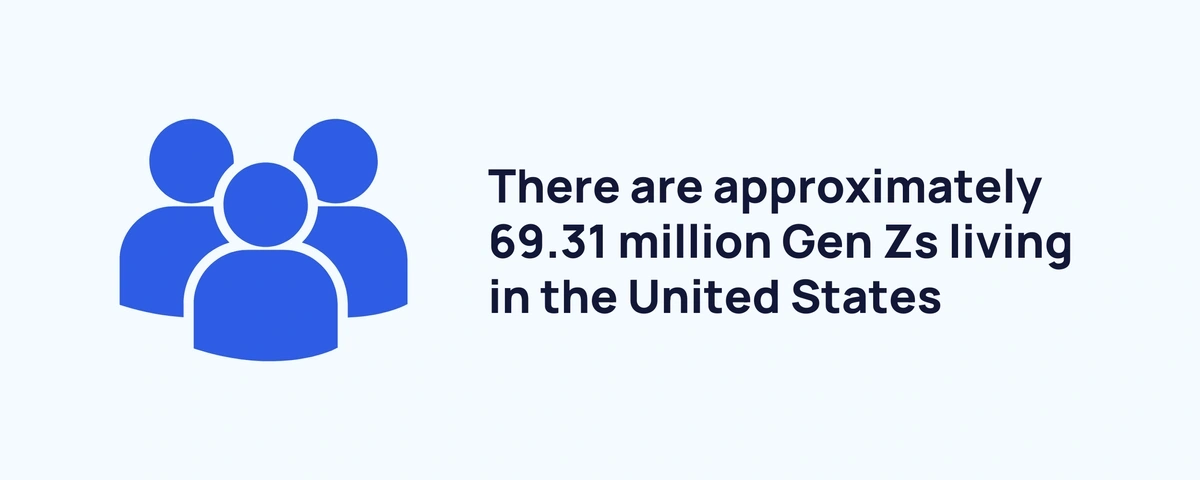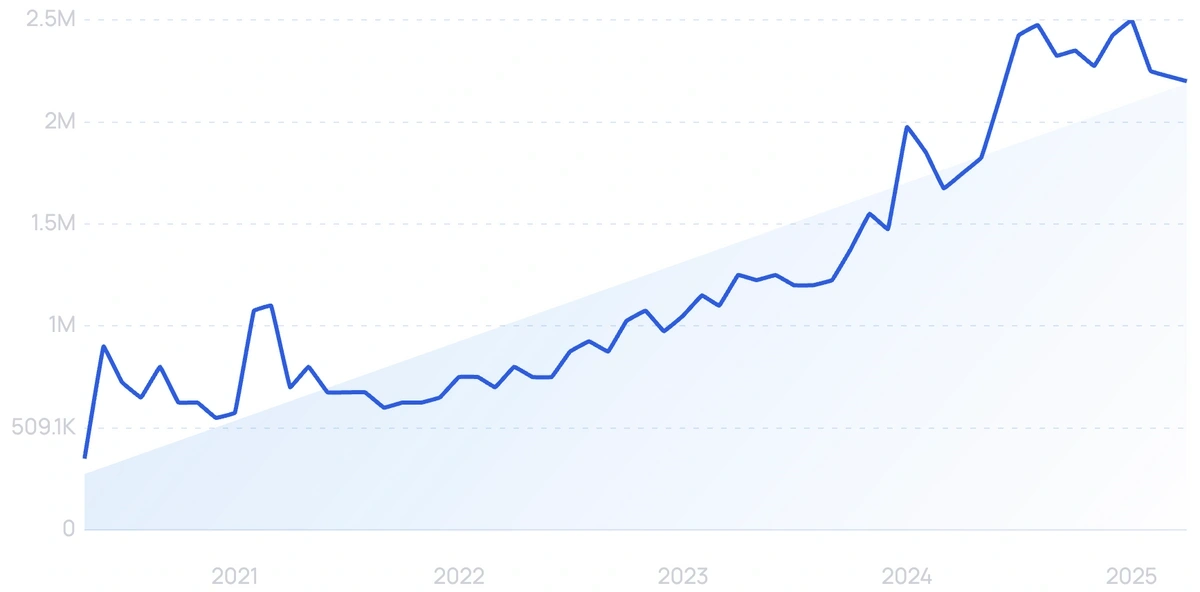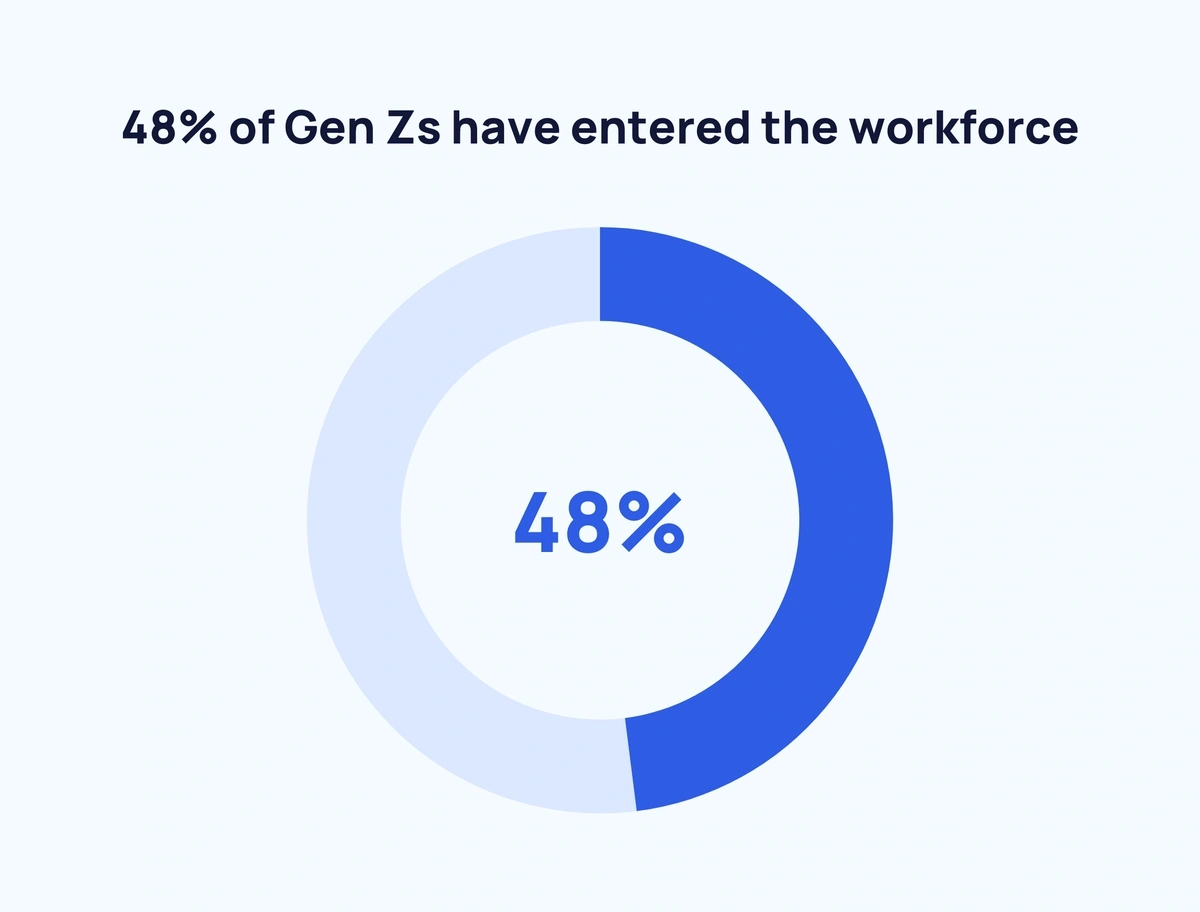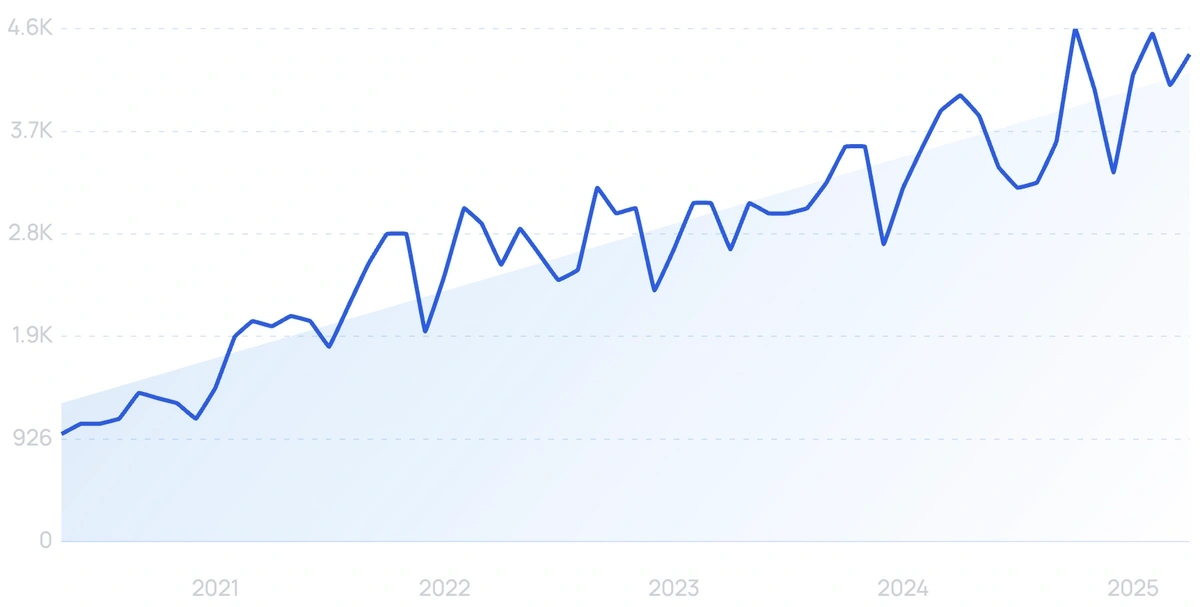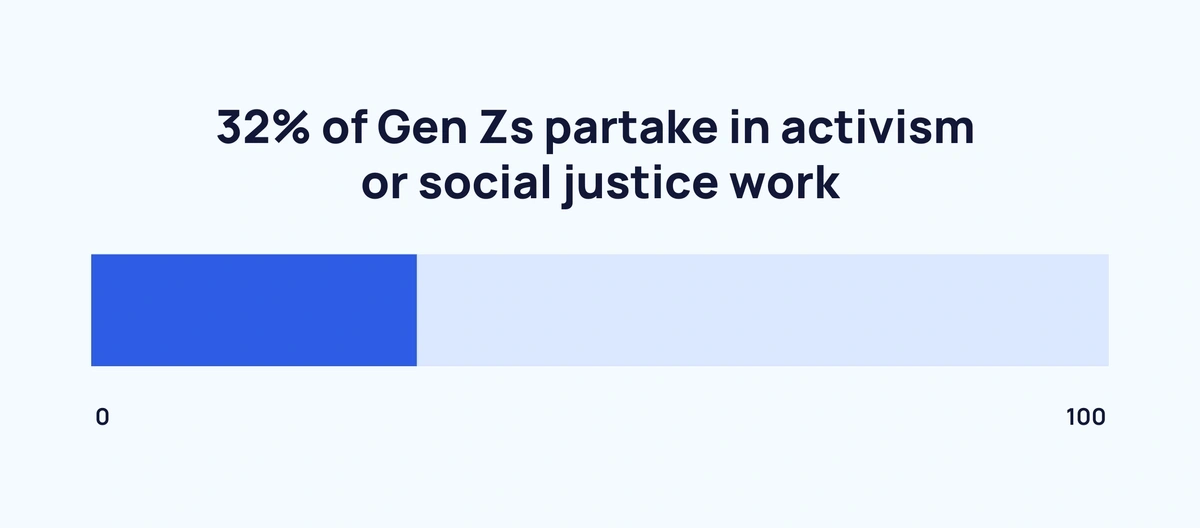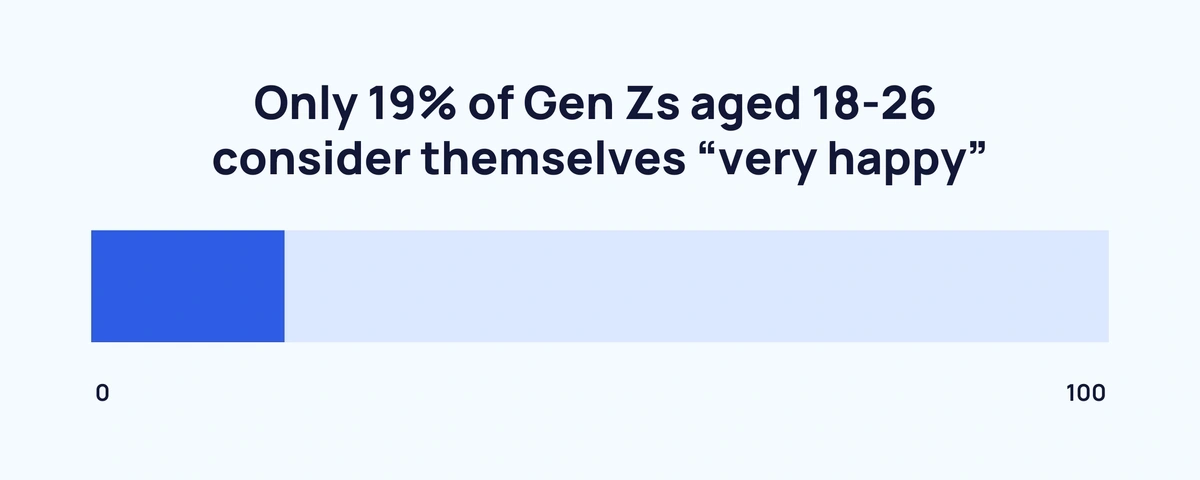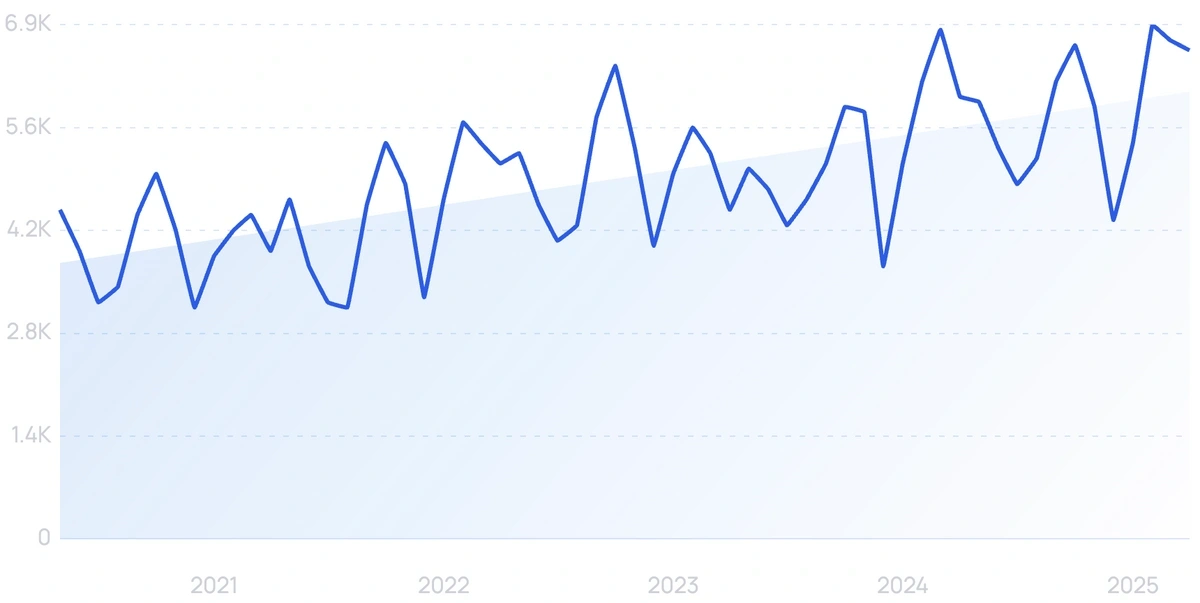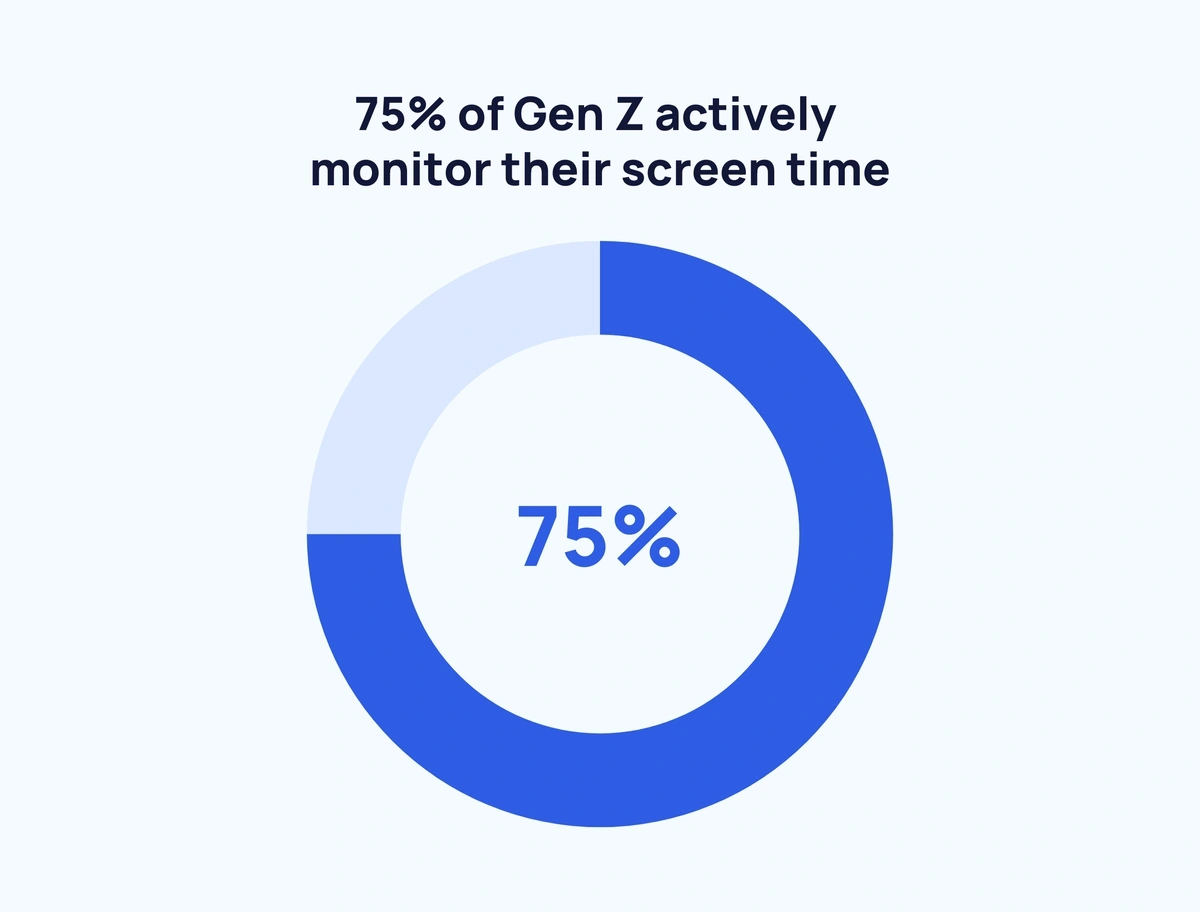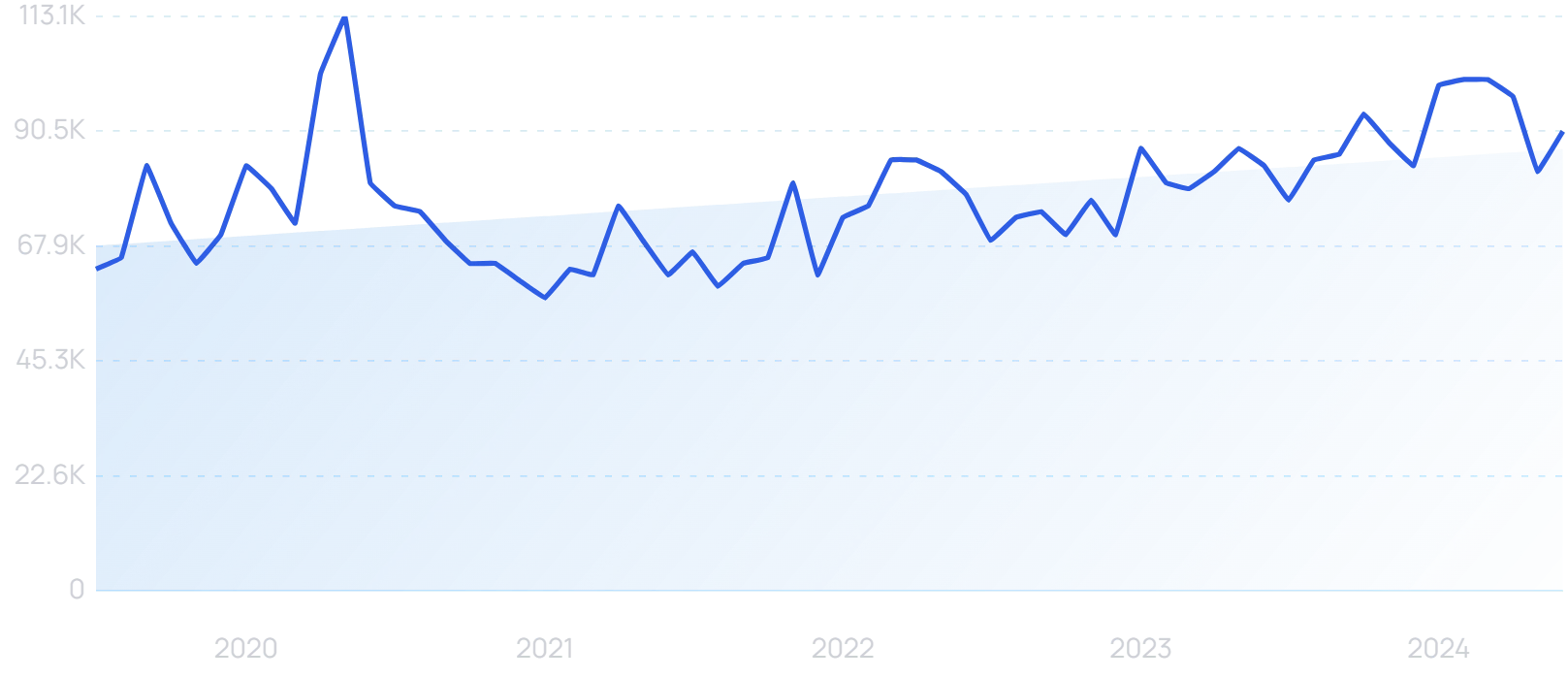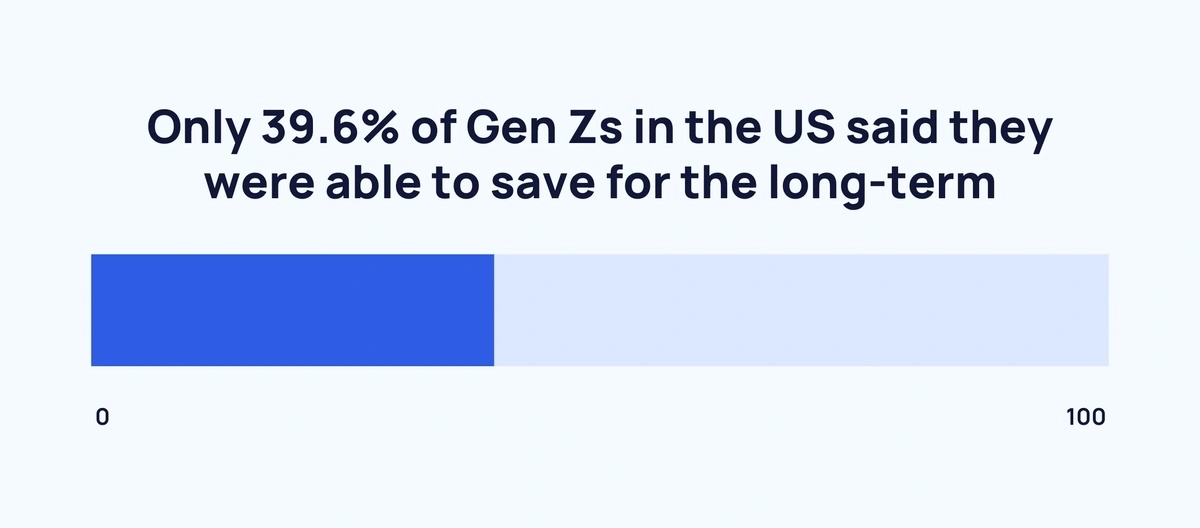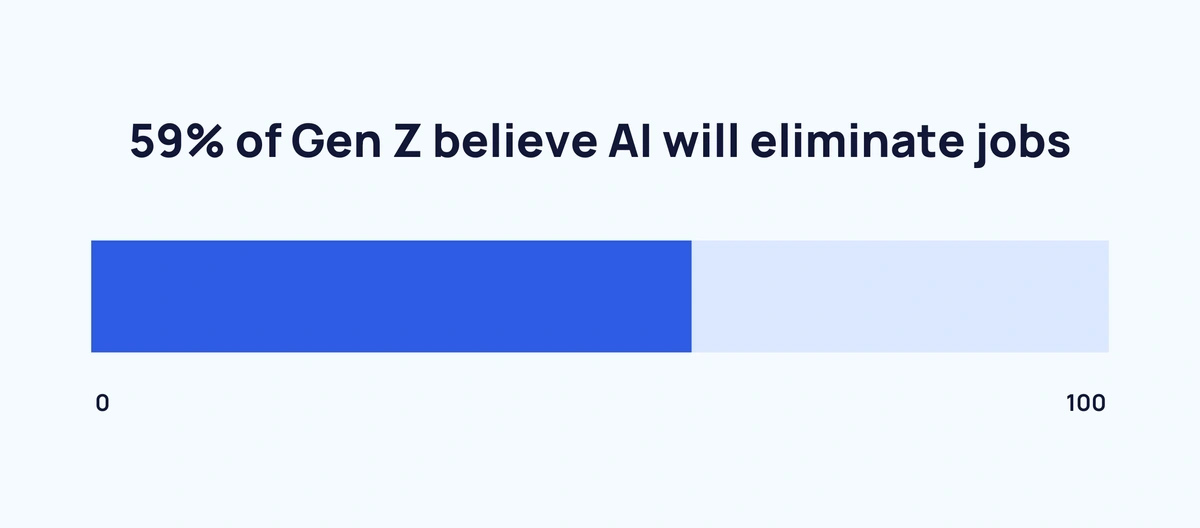Get Advanced Insights on Any Topic
Discover Trends 12+ Months Before Everyone Else
How We Find Trends Before They Take Off
Exploding Topics’ advanced algorithm monitors millions of unstructured data points to spot trends early on.

Keyword Research
Performance Tracking
Competitor Intelligence
Fix Your Site’s SEO Issues in 30 Seconds
Find technical issues blocking search visibility. Get prioritized, actionable fixes in seconds.
Powered by data from
25+ New Generation Z Statistics (2025)
Generation Z, the generation of people born between 1997 and 2012, is a wholly unique generation.
They grew up with multiple screens, in households where streaming, social media, and one-day shipping were the norm. To top it off, they experienced a global pandemic during their formative years.
As the oldest members of Gen Z make their way into the workforce, they’re considering their long-term goals and helping to shape the future of work.
Ready to get to know Generation Z? Read on for all the latest Gen Z stats.
Contents
- Top 2025 Generation Z Statistics
- Generation Z Demographics
- Generation Z And Social Issues
- Generation Z Mental Health Statistics
- Generation Z Social Media Statistics
- Generation Z Workforce Statistics
Top 2025 Generation Z Statistics
Before getting into the complete list, here’s a look at Gen Z in 6 key statistics:
- There are 69.31 million Gen Zs living in the United States.
- YouTube and Instagram are the most popular platforms among Gen Z, but TikTok is closing in.
- The cost of living is Gen Z’s greatest concern.
- 40% of Gen Z feel stressed or anxious most of the time.
- More than half of Gen Z follow and purchase from influencers.
- 59% of Gen Zs think AI will eliminate jobs.
Generation Z Demographics
Falling between Millennials and Generation Alpha, Gen Z is at a turning point. The youngest among them are yet to start high school, while the oldest are leaving college, entering the workforce, and starting families.
There are approximately 69.31 million Gen Zs living in the United States (US Census)
Gen Zs already total over 69 million in the United States alone. That’s slightly over 20% of the US population.
Searches for “Gen Z” over the past 5 years.
Gen Z is only marginally majority white in the US (US census)
51% of Gen Zs in America identify as non-hispanic white. As immigration continues, Pew Research predicts that number will dip below the 50% threshold by 2026. Gen Alpha has already crossed that mark.
Gen Z is on the fence about higher education (Gallup)
Less than half of Gen Z teens (49%) say they would like to attend college full-time after high school. That figure rises to 74% when including those who would like to attend college part-time while working, but still sits 11 percentage points lower than it did for Millennials.
Financial pressures are among the reasons. 83% of Gen Z view college education as very important or fairly important, but 48% were unable to agree with the statement that they will be able to afford it.
48% of Gen Zs have entered the workforce (GWI)
Gen Z is growing up. Almost half of them either hold jobs (part-time or full-time) or are self-employed, while 35% are still students. As they enter adulthood, Gen Zs are also delaying starting families. Only 16% have children, while just 10% are married.
Generation Z and Social Issues
Gen Zs are growing up in a world that is changing at a break-neck pace. It’s only natural that they have strong feelings about the environment, politics and social justice. Here’s how Gen Zs view some of today’s most pressing social issues.
The cost of living is Gen Z’s greatest concern, while climate ranks high (Deloitte)
When asked about their concerns on a variety of social issues, 34% of Gen Zs said they were concerned about the cost of living — the highest percentage on any issue. 21% are concerned about unemployment, 20% about climate change, 19% about mental health, and 17% about crime and personal safety.
Searches for “climate risk” are up 335% over the past 5 years.
46% of Gen Zs have either already changed jobs/industries or plan to do so due to climate concerns (Deloitte)
Gen Zs are willing to take decisive action in the fight against climate change. Not only are almost half either changing industry or thinking about it, but 54% are putting pressure on their employers to take more environmental action.
Almost two in three Gen Z consumers (64%) are willing to pay more to purchase sustainable products. 62% have felt worried or anxious about climate change within the last month.
Around 1 in 3 Gen Zs are regularly involved in some form of activism (United Way)
32% of Gen Zs partake in activism or social justice work, a figure rising to 40% among college students. Two-thirds say most of their activism takes place online.
Most Gen Zs don’t believe life will get better in the near future (Deloitte)
While nearly half (48%) of Gen Zs surveyed predicted their personal finances would improve in the next 12 months, there was a less optimistic outlook on society.
Just 32% predicted the overall economic situation would get better, while 28% thought the overall social/political climate would improve. Millennials gave broadly similar answers, though on the whole they were even less hopeful.
Generation Z Mental Health Statistics
While 40% of Gen Z report these mental health struggles, that’s actually down from 46% a year ago. Meanwhile, only 35% of millennials feel the same.
Health and finance led the way as the main stress factors.
Only 19% of Gen Zs aged 18-26 consider themselves “very happy”(Gallup)
Less than 1 in 5 among the older contingent of Gen Z would say they are very happy. However, 68% report being at least somewhat happy.
Among those in the LGBT+ community, rates of happiness fall lower, with only 12% considering themselves very happy.
55% of Gen Zs and Millennials have been to therapy, with 1 in 4 planning to stay forever (Thriving Center of Psychology)
Gen Z is the most likely to seek out treatment for mental health issues. Anxiety, depression and stress are the top reasons for attendance, with two in five Gen Zs and Millennials intending to seek out therapy this year.
Google searches for “mental wellbeing” are up 148% over the past 5 years.
Nearly 1-in-5 Gen Z high school students have seriously considered suicide (CDC)
18.8% of Gen Z high school students say they’ve struggled with suicidal ideation. 15.7% have made a suicide plan, 8.9% have attempted suicide. 2.5% made a suicide attempt which required medical intervention.
Generation Z Social Media Statistics
The oldest Gen Zs were 7 years old when Facebook launched in 2004. They’re the first generation to grow up with social media. For many, it’s a multipurpose tool offering connection, entertainment, and brand exposure.
YouTube and Instagram are the most popular social media platforms among Gen Z (Morning Consult)
Gen Z is often closely associated with TikTok, but the short-form video sharing platform is yet to overtake established giants YouTube and Instagram.
Over 80% spend time on YouTube, while 75% use Instagram. TikTok is closing in, with 69% of Gen Z spending time on the platform.
In fact, 36.79% of all YouTube users are Gen Z according to Semrush data. Meanwhile, 39% of all TikTok users are between the ages of 18-28.
75% of Gen Z actively monitor their screen time (Sago)
Gen Z is particularly aware of the potential impact of excessive social media usage. TikTok is the app it’s hardest to stay away from.
Despite consciously tracking time spent on social media, more than half of Gen Z spends at least four hours per day on these platforms.
Over half of Gen Zs follow and purchase from influencers (Klarna)
Social media as a shopping tool is on the rise, and 52% of Gen Zs make purchases through influencers they follow online. That’s more than the 43% who follow and buy from retailers.
Gen Z is the only generation where influencers hold greater social media purchasing sway than retailers.
Searches for “influencer marketing” over the past 5 years.
Data shows that Gen Zs are rapidly turning to TikTok for a variety of purposes (GWI)
TikTok has experienced a meteoric rise in recent years. While Instagram remains the gold standard for many social activities among Gen Z, TikTok is increasingly being used for a wider range of purposes.
Since Q4 2020, there’s been a 104% increase in Gen Z using TikTok to find out information about products and brands. Use of TikTok as a source of news has gone up 90%.
In fact, all four of the top social media use-case increases relate to TikTok. There’s been a 69% rise in use of the app for messaging friends, while 38% more people use it to post and share photos and videos.
Rounding out the top five is use of Instagram to message friends and family, which is up 28% over the same period. X (formerly Twitter) is a big faller across a number of categories, including as a place to find entertaining content.
Gen Z are turning to live streams (GWI)
The APAC region is leading the charge towards live-streamed social media content. In Indonesia, 39% said they had watched a live stream within the last week, a trend mirrored in China, Malaysia, Vietnam and Hong Kong.
Gen Z love ‘storytime’ videos, while reviews convert the most (Morning Consult)
67% of Gen Zs enjoy watching ‘storytime’ videos, where the content creator narrates an episode from their life. Review videos are most likely to lead viewers to buy a product, with 53% of consumers saying they have bought a product after watching one.
Haul videos (40%) and ‘get ready with me’ content (37%) are the next most likely to convert to sales among Gen Z. That’s despite being among the least-enjoyed forms of social video.
Generation Z Workforce Statistics
Nearly half of Gen Zs are already part of the workforce in some capacity. Many began their careers during COVID and have only ever experienced remote or hybrid work environments. As a result, they have expectations that employers will have to grapple with in the future.
6 in 10 Gen Zs feel unable to save for the future (eMarketer)
When asked what categories of expenditure they can comfortably cover, only 39.6% of Gen Zs in the US said they were able to save for the long-term.
More than a quarter say they are struggling to cover monthly bills.
Gen Z is job hunting, accounting for the largest share of LinkedIn and Indeed users in 2024 (Semrush)
At least 1 in 3 LinkedIn or Indeed users are members of Generation Z. 33.86% of all LinkedIn users are between the ages of 18-28, while 35.92% of all Indeed users meet the same criteria.
In fact, nearly half of LinkedIn users (48.5%) and more than half of Indeed users (50.2%) are Gen Z (18–24) and Millennials (25–34).
42% of Gen Zs have thought about quitting their job within the last three months (CNBC)
Generation Z is far more likely to participate in the Great Resignation than Millennials. 42% of Gen Zs say they’ve had thoughts of wanting to quit their job within the last three months, compared to 38% of Millennials and 34% of Gen X.
47% of Gen Z admit they are ‘coasting’ at work. But 40% say they are ‘thriving’.
Gen Z is shifting away from hybrid or remote work arrangements (CNBC)
Many members of Gen Z entered the workplace at a time when remote work was becoming the norm during the pandemic. But as society has opened up, they have felt the desire to return to the office more strongly than older generations.
Only 26% of 18-34 year-olds express a desire to work fully or mostly remotely, lower than the 28% average across all age groups. 46% want to work entirely in-person.
59% of Gen Z believe AI will eliminate jobs (Deloitte)
Almost 6 in 10 Gen Zs believe AI-driven automation will take away jobs. That actually rises to 78% among those who use the technology regularly.
However, 80% of frequent Gen Z generative AI users believe it will free up time and improve work/life balance, a view shared by 58% of Gen Z as a whole. Nearly half believe it will improve the way they work.
When choosing an employer, pay is the top factor Gen Zs use, but they are also interested in advancement opportunities (CNBC)
A common theme across the generations, Gen Z is serious about getting paid well. 60% listed it among the top three things that make a workplace more engaging.
But where Gen Z diverges is its desire for advancement opportunities. 32% listed this in their top three, above the overall average of 28%.
Gen Z is also eager for more opportunities to connect with coworkers (21%). But summing up the dilemma for employers, 17% listed ‘more hybrid or remote work options’ among their top three positives.
Wrap Up
If there’s one word to sum up Gen Z, it’s more.
They’re more diverse and more environmentally conscious than previous generations. And while mental health and job dissatisfaction are struggles for people of all ages, Gen Zs are more likely to take action — either by seeking treatment or changing jobs.
Gen Zs see both the opportunities and challenges of today’s world. They’re willing to express their demands to their governments and employers. Over the next several decades, we’ll witness just how large an impact Gen Z will have on the world and future generations.
Check out our other related posts: Key Gen Z Trends and Millennial Trends.
Stop Guessing, Start Growing 🚀
Use real-time topic data to create content that resonates and brings results.
Exploding Topics is owned by Semrush. Our mission is to provide accurate data and expert insights on emerging trends. Unless otherwise noted, this page’s content was written by either an employee or a paid contractor of Semrush Inc.
Share
Newsletter Signup
By clicking “Subscribe” you agree to Semrush Privacy Policy and consent to Semrush using your contact data for newsletter purposes
Written By


Josh is the Co-Founder and CTO of Exploding Topics. Josh has led Exploding Topics product development from the first line of co... Read more




